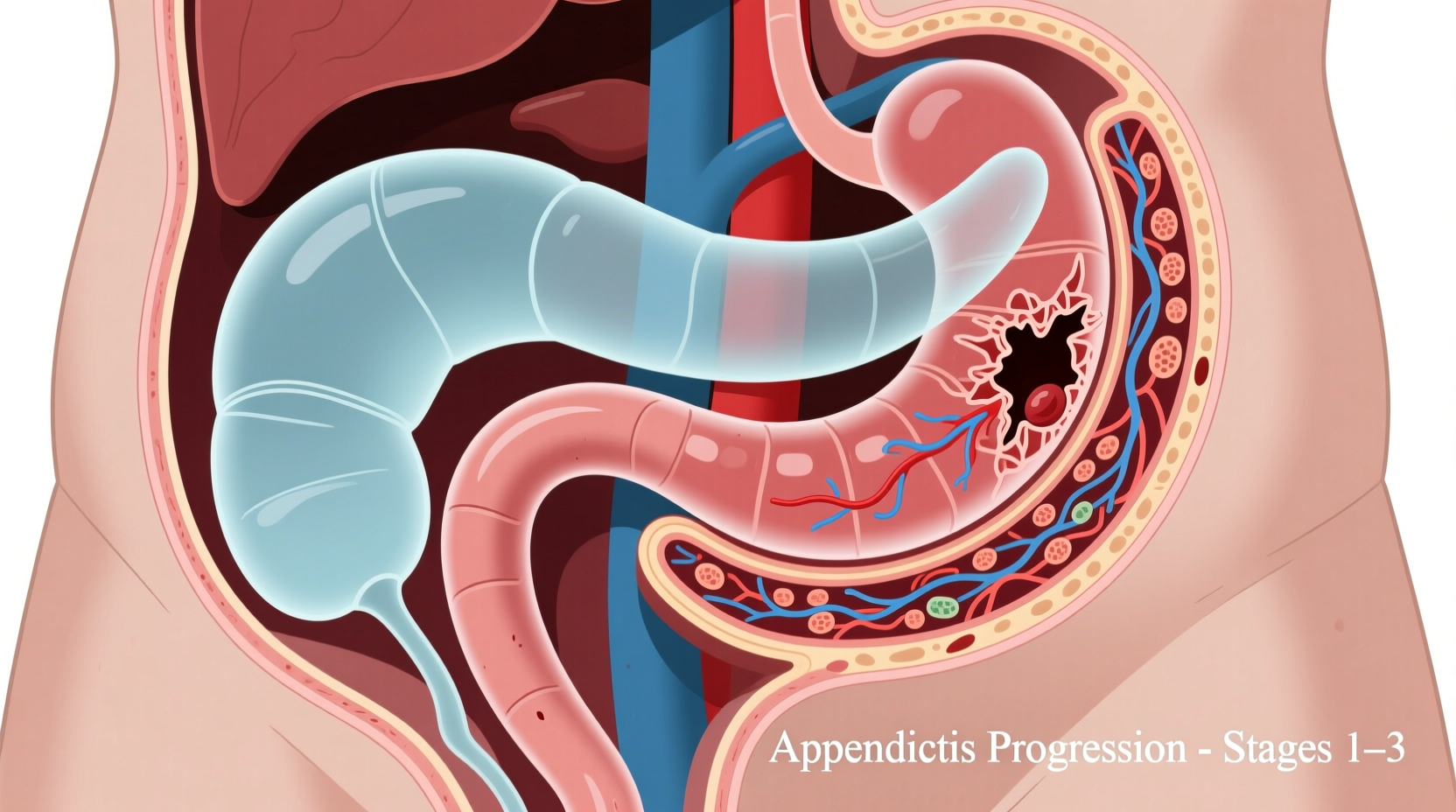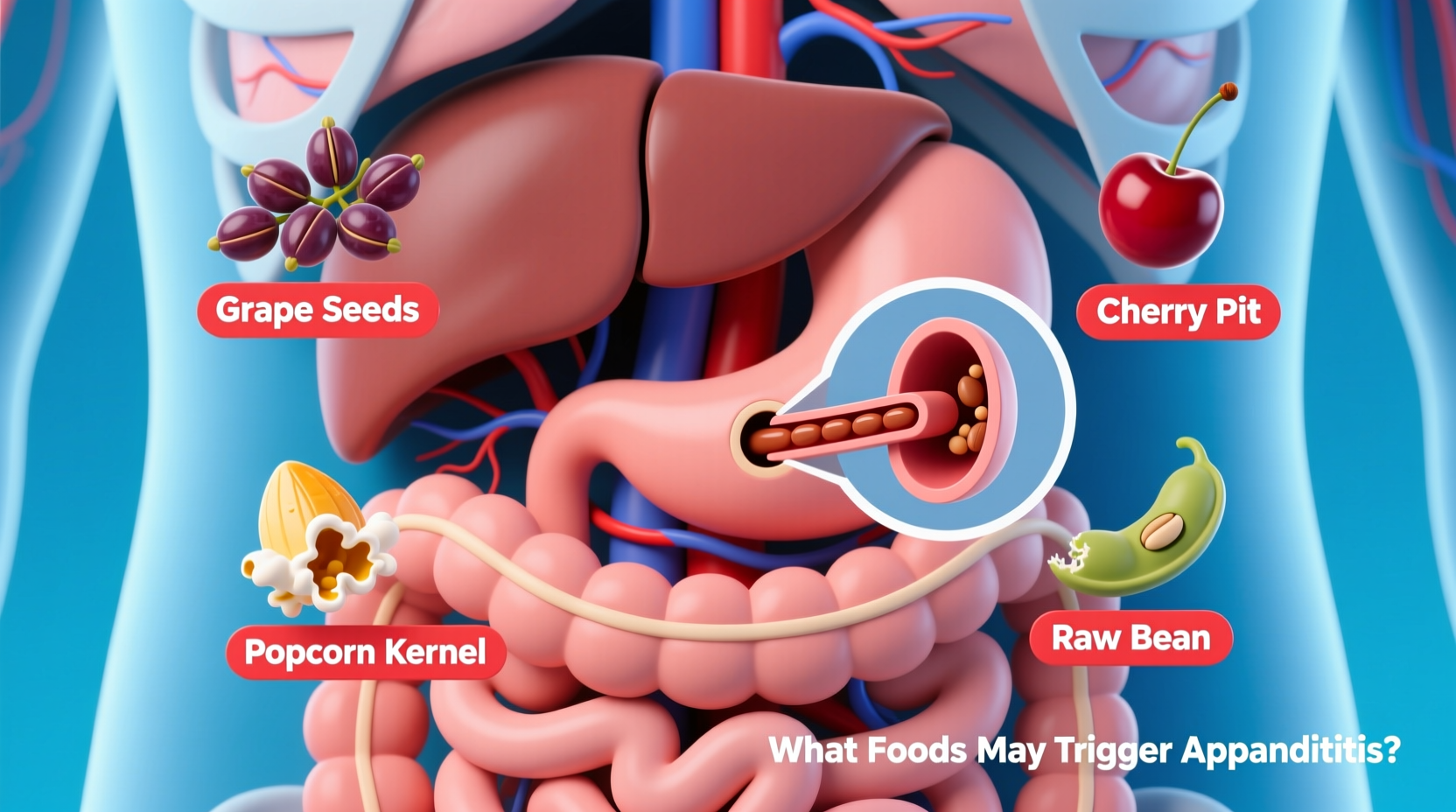For decades, many have believed that foods like popcorn kernels, sunflower seeds, or fruit pits can trigger appendicitis by getting stuck in the appendix. This misconception has led to unnecessary dietary restrictions and confusion about a serious medical condition. Let's examine what medical science actually tells us about appendicitis causes and the role of diet.
The Origin of the Appendicitis Food Myth
The belief that certain foods cause appendicitis dates back to early 20th century medical theories. Before advanced imaging and surgical techniques, doctors occasionally found seeds or pits in inflamed appendices during operations. They mistakenly concluded these items caused the inflammation rather than recognizing they were merely present in the digestive tract.
According to a comprehensive review published in the American Journal of Surgery, "the association between appendicitis and foreign bodies like seeds has been largely disproven by modern research." The study analyzed over 30,000 appendectomy cases and found no significant correlation between consumption of seeds, nuts, or popcorn and appendicitis incidence.
| Commonly Blamed Foods | Actual Medical Findings | Scientific Consensus |
|---|---|---|
| Popcorn kernels | No evidence they cause obstruction | Myth debunked |
| Sunflower seeds | Found in appendix only incidentally | No causal relationship |
| Fruit pits | Rarely associated with actual cases | Not a significant risk factor |
| Nuts | No correlation in population studies | Myth persists despite evidence |
What Actually Causes Appendicitis?
Modern medical understanding reveals that appendicitis typically develops when the appendix becomes blocked. However, the blockage is almost always caused by:
- Lymphoid hyperplasia (swelling of immune tissue in the appendix wall)
- Fecal matter (not specific food items)
- Intestinal parasites (in endemic regions)
- Rarely, tumors
The American College of Gastroenterology states: "Appendicitis is primarily an inflammatory condition often triggered by the body's immune response, not by specific dietary components." Their research shows that 60-70% of appendicitis cases involve lymphoid tissue enlargement, frequently following viral or bacterial infections elsewhere in the body.

Appendicitis Risk Factors You Should Know
While food doesn't cause appendicitis, certain factors do increase risk:
- Age: Most common between 10-30 years old
- Infections: Recent gastrointestinal infections
- Family history: Genetic predisposition plays a role
- Seasonal patterns: Higher incidence in summer months
A 10-year study by the Mayo Clinic tracked dietary patterns and appendicitis incidence across 50,000 participants. The researchers concluded: "No specific dietary components were associated with increased appendicitis risk. The strongest predictors were recent viral infections and family history." You can read the complete findings in the Mayo Clinic Proceedings.
Post-Appendectomy Dietary Guidelines
While food doesn't cause appendicitis, what you eat after surgery matters significantly for recovery. Immediately following appendectomy, doctors typically recommend:
- First 24 hours: Clear liquids only (water, broth, apple juice)
- Days 2-3: Full liquids and soft foods (smooth soups, yogurt, applesauce)
- Week 1: Gradual reintroduction of solid foods
- Weeks 2-4: Return to normal diet as tolerated
The American Society of Colon and Rectal Surgeons advises patients to avoid highly processed foods and focus on nutrient-dense options during recovery. Their guidelines specifically state: "There's no need to avoid seeds or nuts after appendectomy unless they cause individual digestive discomfort."
When Food Might Exacerbate Symptoms
Though food doesn't cause appendicitis, certain dietary patterns might worsen symptoms once inflammation has begun:
- Foods high in fat may increase abdominal discomfort
- Large meals could put additional pressure on the inflamed area
- Gas-producing foods might increase pain temporarily
It's crucial to distinguish between appendicitis and other conditions with similar symptoms. Conditions like Crohn's disease, ovarian cysts, or urinary tract infections can present with right lower quadrant pain but have different dietary implications. The National Institute of Diabetes and Digestive and Kidney Diseases emphasizes: "If you experience sudden, severe abdominal pain, seek immediate medical attention rather than adjusting your diet."
Evidence-Based Prevention Strategies
While you cannot prevent appendicitis through diet, maintaining overall digestive health supports your body's resilience:
- Eat a balanced diet rich in diverse plant foods
- Stay properly hydrated
- Manage stress, which affects gut health
- Treat gastrointestinal infections promptly
Research from Harvard Medical School suggests that diets high in fiber from various plant sources support healthy gut immunity, potentially reducing the severity of inflammatory responses. However, they caution that "no dietary intervention has been proven to prevent appendicitis specifically."
When to Seek Medical Attention
Recognizing appendicitis symptoms is far more important than worrying about food triggers. Seek immediate medical care if you experience:
- Pain starting near the navel and moving to lower right abdomen
- Nausea or vomiting with abdominal pain
- Loss of appetite with pain
- Fever accompanying abdominal discomfort
Remember that appendicitis is a medical emergency requiring prompt treatment. Delaying care while trying dietary modifications could lead to serious complications like a ruptured appendix.











 浙公网安备
33010002000092号
浙公网安备
33010002000092号 浙B2-20120091-4
浙B2-20120091-4